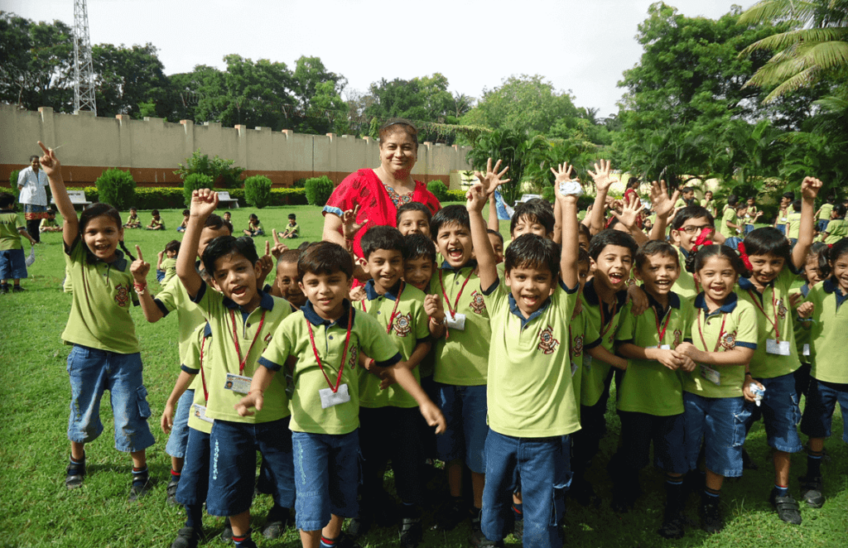
In order to successfully navigate the CBSE (Central Board of Secondary Education) system, parents and students must be proactive and involved. First and foremost, it’s critical to communicate with administrators and teachers. Establishing regular communication channels with teachers is important for parents to be informed about their child’s development, areas for growth, and impending exams or assignments. Participating in school functions and parent-teacher conferences can also yield insightful information about the academic standards and school culture. In addition, it is recommended that students utilize the various resources at their disposal, including libraries, study groups, and extracurricular activities, in order to optimize their educational journey and develop a comprehensive skill set.
Second, the finest CBSE schools require students to have strong organizational and time management abilities in order to succeed. Urge your child to follow a regimented study schedule that allots enough time for each topic and strikes a balance between schoolwork and extracurricular activities. Students can remember assignments, due dates, and test dates by using tools like planners or digital calendars. Furthermore, creating a distraction-free, favorable learning environment at home can improve focus and efficiency during study sessions. Parents and kids may both succeed within the CBSE framework by encouraging open communication, placing a strong emphasis on time management, and creating a welcoming learning atmosphere.
Understanding the CBSE Curriculum
The curriculum of the Central Board of Secondary Education, or CBSE, is created to offer a comprehensive education that prioritizes the growth of critical thinking abilities in addition to academic achievement. It adheres to an organized framework that encompasses several topics, such as mathematics, physics, languages, social sciences, and vocational studies. The curriculum is updated frequently to reflect current teaching practices and global educational standards, guaranteeing that students graduate with marketable knowledge and abilities.
Additionally, the curriculum of the CBSE promotes experiential learning through projects, hands-on activities, and engaging classroom discussions. It encourages students’ creativity, inventiveness, and problem-solving skills by placing more emphasis on conceptual comprehension than rote memorization. Through the use of a range of assessment techniques, such as projects, quizzes, annual exams, and continual evaluation, the CBSE curriculum seeks to evaluate students’ thorough comprehension of the material and foster both their general academic and personal development. Parents and children may promote learning outcomes, actively participate in the educational process, and get ready for future academic and professional aspirations by having a thorough understanding of the CBSE curriculum.
Selecting the Right CBSE School
A number of criteria need to be carefully considered before choosing the top CBSE school. First and foremost, parents need to evaluate the academic standing and reputation of the institution, taking into account elements like recognition, accreditation, and board test outcomes. In order to make sure the child receives a well-rounded education, it is imperative to investigate the teaching strategies, faculty credentials, and extracurricular offerings of the school. Furthermore, assessing the facilities, safety precautions, and infrastructure of the school might give light on the general atmosphere and experience of the students.
In order to make sure that the school’s ethos and values correspond with the expectations and beliefs of their family, parents should also take into account the school’s closeness to their home, available transportation, and other factors. Taking a tour of the school, going to open houses, and chatting with the faculty and staff can provide insightful firsthand knowledge and provide insight into the school’s community and culture. Parents can make an informed choice and choose a CBSE school that best suits their child’s educational needs and goals by carefully weighing these factors.
Nurturing Holistic Development
Fostering progress in all domains—academic, emotional, social, and physical—is essential to holistic development. When it comes to fostering conditions that encourage development of the full person, parents and educators are essential. Fostering involvement in a variety of activities, including athletics, the arts, volunteer work, and academic endeavors, allows kids to discover their passions and abilities while gaining vital life skills like resilience, teamwork, and leadership.
Furthermore, it is essential for children’s holistic development to foster an environment that is inclusive, supportive, and makes them feel valued and appreciated. Children can acquire a strong sense of self-awareness and empathy for others when they are given opportunities for self-expression, contemplation, and personal development. Parents and teachers may enable children to flourish academically, emotionally, and socially by identifying and fostering each child’s particular talents and abilities. This will set the groundwork for long-term success and well-being.
Preparing for CBSE Board Examinations
It takes careful preparation and strategic planning to be ready for the CBSE Board Examinations. First and foremost, students need to be fully aware of the grading criteria and exam curriculum for every topic. Making a realistic study plan that allows enough time for breaks, practice exams, and revision will help you manage your time better and feel less stressed. Furthermore, concentrating on comprehending ideas rather than facts helps improve information retention and deeper understanding.
Additionally, using sample papers and question papers from prior years can help students become comfortable with the format of the exam and pinpoint areas that need more focus. Gaining knowledge and confidence can be increased by working with peers in group study sessions or asking teachers for clarification on difficult subjects. Making self-care a priority by eating a healthy diet, getting enough sleep, and practicing relaxation techniques will also help you perform at your best throughout the exam period. Students can successfully prepare for the CBSE Board Examinations and meet their academic objectives by following a methodical approach and remaining dedicated to their studies.
Frequently Asked Questions
Q1. What sets CBSE schools apart from other school boards?
A. CBSE schools, abide by a uniform national curriculum that is implemented throughout India under the Central Board of Secondary Education. They set themselves apart from other boards with their uniformity and emphasis on comprehensive learning outcomes. They place a strong emphasis on ongoing evaluation, holistic development, and the incorporation of novel teaching approaches.
Q2. What qualities ought to I seek for in a nearby CBSE school?
A. When searching for CBSE schools near me, Think about things like the school’s academic standing, resources, staff experience, extracurricular activities, student-teacher ratio, location, cost, transportation, and the general learning and development-promoting atmosphere of the school.
Q3. Which extracurriculars are usually available at CBSE schools?
A. In order to promote students’ holistic development, CBSE schools usually provide a wide range of extracurricular activities, such as sports like athletics, football, basketball, and cricket, as well as cultural events, debates, quizzes, music, dance, arts and crafts, dramatics, science exhibitions, and community service projects.
Q4. How do CBSE schools guarantee their pupils’ overall development?
A. By providing a well-rounded curriculum that integrates academics with extracurricular activities and places a strong emphasis on moral principles, character development, and life skills, CBSE schools guarantee holistic growth. By offering chances for social interaction, leadership training, and personal development, they foster well-rounded people who are ready for a variety of tasks.

